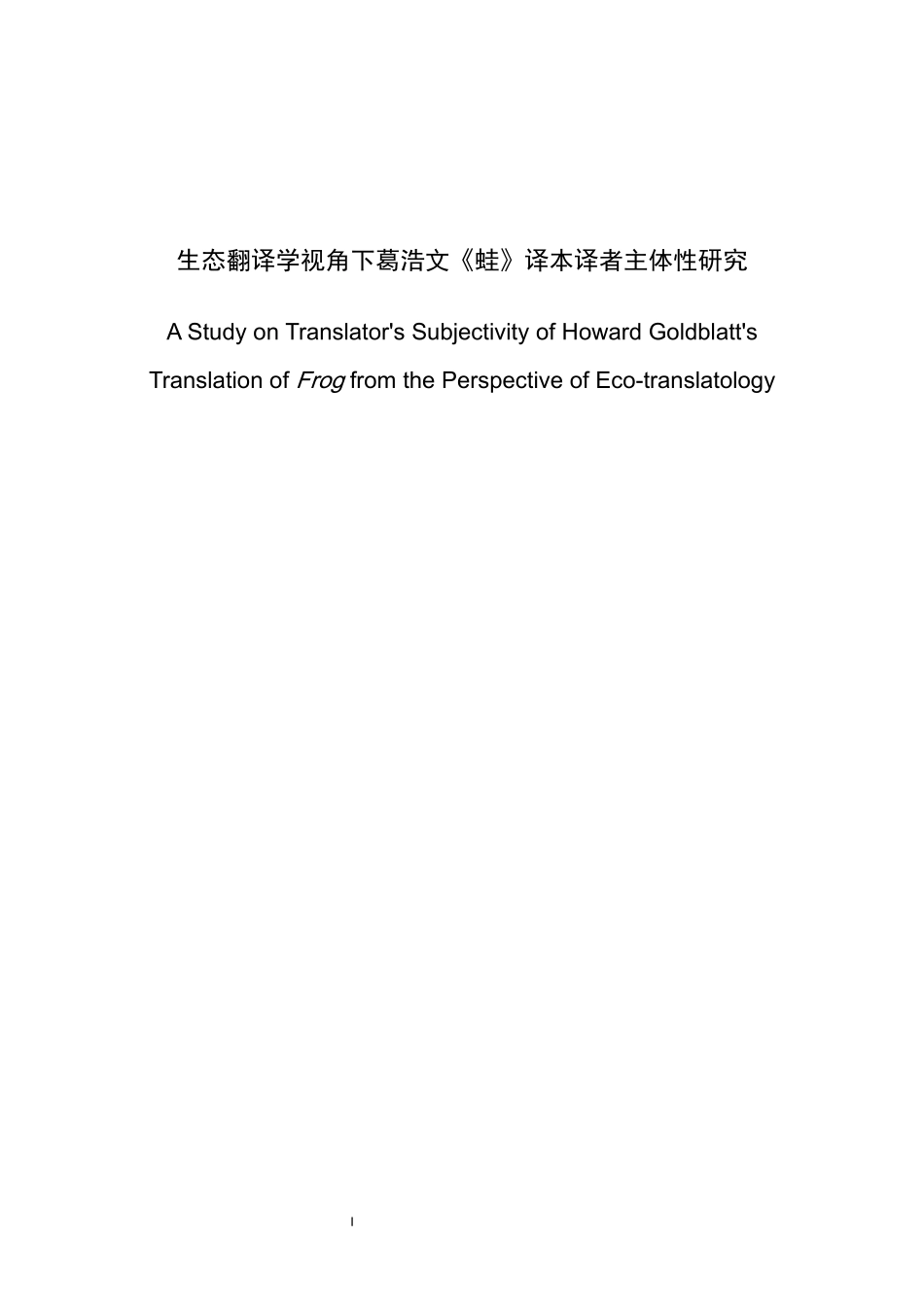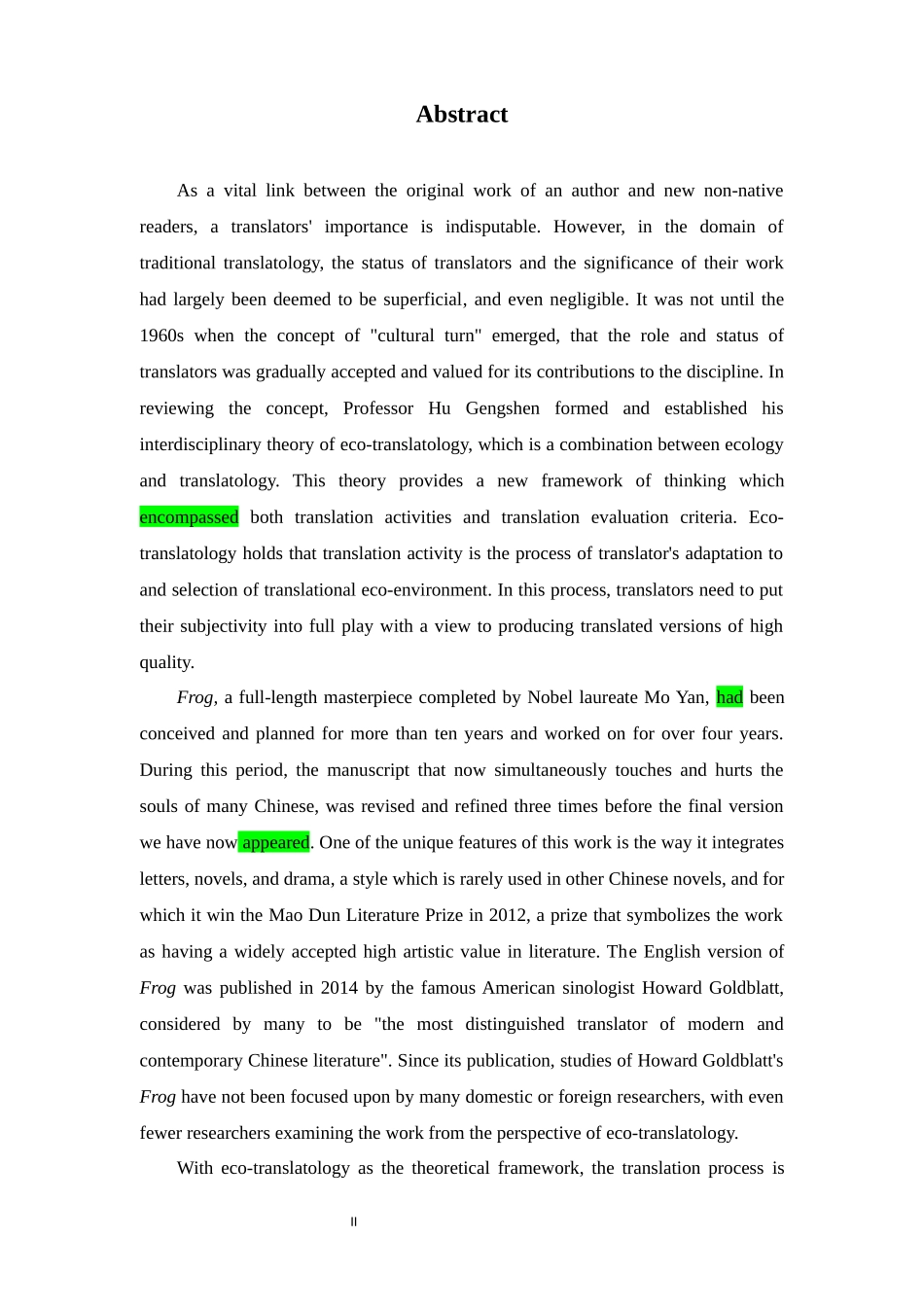II生态翻译学视角下葛浩文《蛙》译本译者主体性研究A Study on Translator's Subjectivity of Howard Goldblatt's Translation of Frog from the Perspective of Eco-translatologyIIAbstractAs a vital link between the original work of an author and new non-native readers, a translators' importance is indisputable. However, in the domain of traditional translatology, the status of translators and the significance of their work had largely been deemed to be superficial, and even negligible. It was not until the 1960s when the concept of "cultural turn" emerged, that the role and status of translators was gradually accepted and valued for its contributions to the discipline. In reviewing the concept, Professor Hu Gengshen formed and established his interdisciplinary theory of eco-translatology, which is a combination between ecology and translatology. This theory provides a new framework of thinking which encompassed both translation activities and translation evaluation criteria. Eco-translatology holds that translation activity is the process of translator's adaptation to and selection of translational eco-environment. In this process, translators need to put their subjectivity into full play with a view to producing translated versions of high quality.Frog, a full-length masterpiece completed by Nobel laureate Mo Yan, had been conceived and planned for more than ten years and worked on for over four years. During this period, the manuscript that now simultaneously touches and hurts the souls of many Chinese, was revised and refined three times before the final version we have now appeared. One of the unique features of this work is the way it integrates letters, novels, and drama, a style which is rarely used in other Chinese...


